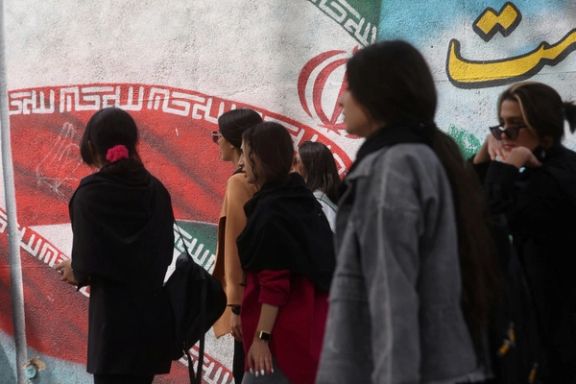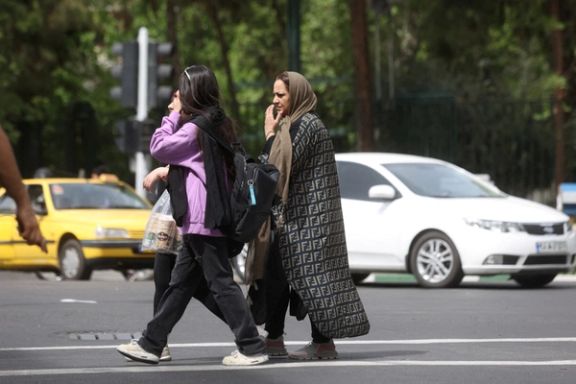Iran’s Draconian Hijab Laws Are Gender-Based Persecution – UN Experts

A group of UN human rights experts said Friday that Islamic Republic’s repressive measures to enforce hijab epitomize gender-based persecution.

A group of UN human rights experts said Friday that Islamic Republic’s repressive measures to enforce hijab epitomize gender-based persecution.
The experts argued imposing compulsory veiling on girls from the age of seven at the start of elementary school are a manifestation of gender-based persecution and would lead to unacceptable levels of violations of the rights of women and girls in Iran.
The group is comprised of Javaid Rehman, UN Special Rapporteur on the Situation of Human Rights in Iran and four other special rapporteurs.
“It is deeply worrying that after months of nationwide protests, including against restrictive hijab laws, and following the death of 22-year-old Mahsa Amini in the custody of the morality police, Iranian women are increasingly facing harsh and coercive measures by State authorities,” the UN experts said.
The uprising that was sparked by the death in police custody of Amini has made it increasingly difficult for the clerical regime to enforce the mandatory Islamic dress code. Appearing in public without a full veil has become a common sight even in small and more conservative towns. Since the beginning of the ‘Women, Life, Liberty’ movement in September last year, thousands of girls and women have set fire to their headscarves in a symbolic move and voiced opposition to compulsory hijab.
To avoid the public backlash over the violent enforcement of hijab laws, the Islamic Republic has recently begun implementing a wide range of measures from public humiliation tactics -- such as preventing women without hijab to enter subway stations and public places -- to using traffic cameras to identify hijabless women.

The authorities seek to enforce hijab through new methods and announced that women who unveil in public will be deprived of social services such as cellphone lines and mobile internet access. The new punitive measures also include blocking the bank accounts of women and impounding cars in which women remove their hijab.
The situation is extremely grave for students because all the education centers are controlled by the regime, and they can easily be expelled or suspended if they disregard mandatory hijab. The Ministry of Education has also announced recently that educational services will not be provided to students who do not comply with the rules of “chastity and hijab” – undermining their fundamental right to education.
The government can also ban women who unveil from leaving the country and exclude them from government or public positions for not observing its strict interpretation of the Islamic dress code.
The Islamic Republic, founded in 1979, is the only Muslim country other than Taliban ruled Afghanistan with such a strict interpretation of hijab and nationwide coercive measures for its observance, while Islam is the official religion in 26 countries in Asia, sub-Saharan Africa, North Africa, and the Middle East.
Decrying the compulsory veiling laws that are enshrined in Iran’s penal code, the UN experts pointed out that such laws allow authorities to subject women to arbitrary arrests and detentions, and deny them access to public institutions, including hospitals, schools, government offices and airports, if they do not cover their hair.
“These additional repressive measures would further exacerbate the negative impact of the compulsory hijab laws. Criminalizing refusal to wear the hijab is a violation of the right to freedom of expression of women and girls and opens the door to a range of other possible violations of political, civil, cultural and economic rights,” they said.
The rules extend to managers and business owners, who will effectively act as “police” to enforce the compulsory veiling in the event of non-compliance by female employees.
“These restrictive measures and repressive policies that do not rely on laws or legal process, but on enforcement by a range of State authorities and private actors are at the heart of the State's control over the public and private lives of its citizens, particularly women and girls. These draconian measures impose de facto social and economic paralysis on women who refuse to comply with these laws,” the experts said.
Although it may seem futile to Iranians, the UN experts concluded their statement by a call on the authorities to amend the Constitution, repeal existing gender discriminatory laws, and abolish all regulations whereby women's dress or behavior in public or private life is monitored and controlled.